Etude for 2024
Hello everyone!
Well, this is a bit of a lovely surprise.
Over the last few weeks etude has received an influx of new subscribers. I think this is due to the Fergus from The Crush Bar having etude on their list of recommendations, the influx of theatre twitter heads migrating from twitter and the rebirth of Exeunt as a substack. Thank you to everyone who has subscribed.
I thought I’d send you all my first bit of writing this year under the etude banner as these subscribers have made me have a think. I last updated in October of last year with some reflections on a project I was starting called Mystery Theatre Club, a monthly theatre screening club that took place in a community laundrette in Anfield. We ran that for a year and had our last screening in July of this year. That project is on a little break so I can rethink what it’s aims and values are. I think we’ll be back in February with something that is very much not theatre. It’s something live but it ain’t theatre! If you’re curious then drop me a message and I’ll add you to a list of invites. By design, it’s a mystery so if you want an entry into the club, ask!
I’ve also set up the Anfield People’s Cinema with a few friends in Anfield. Free food and cheap cinema for the people of Anfield, curated by the people of Anfield. It’s really lovely and our screening in July was possibly one of my favorite sitting in a room with people experience.
Well that’s me…but lets talk…
Etude’s aim was to be a directory of digital theatre, live streams or archived recording of theatre. During the pandemic, I was able to find around 5 performances to list a week. It felt really exciting that there was so much to watch. I managed to view 150 shows in 2020. Around 70+ in 2021. I was able to access so much stuff that really expanded my knowledge around a global theatrical ecology. It made me feel more ambitious with the work I wanted to create. It made me a better artist.
This year I have seen 7 shows. Most were friends shows which I went so I could support them. When thinking about shows I went to on my own accord, ones I wanted to view as an audience member first and with no relationship to, I would say I saw two shows. One was because I had heard great things about it and the other was because I was bored and wanted to have a night out. I’ve not watched one theatre piece online. There was one I wanted to but to my fault I just kept missing or forgetting. I also have one archived performance opened up in a tab that I need to return to but also just keep forgetting.
I’m finding it harder and harder to seek out online work. It’s very rare to see news of a livestream or digital theatre piece come up on my feed. Twitter’s decline into a fascist algorithm party is the main reason for this. I think theatre’s who are using that platform as a tool for engagement are pissing in the wind a little. Theatres with tens of thousands of followers are getting low engagement even for their big season announcements. Instagram isn’t great either as it has specific requirements to get a boost in engagement. Last time I checked it was how comments worked? Had to be a comment that was over 10 words long before instagram saw it as valuable engagement which then boosts its relevance to the algorithm lords. The West End has cracked tiktok to a certain extent but thats due to a lot of invesment. Social media bubbles are getting tighter and the internet is full of ai bots just speaking to each other. Bluesky seems to be the next platform but I think a lot of people have social media fatigue.
I don’t know the answer. I want to optimistically say a more local approach to audience engagement is the way but I know theatres marketing budgets are reducing and its costs more to go door knocking as opposed to putting a tweet out.
This means as an audience member I rarely know what’s on any more.
As a theatre maker, after spending the lockdown years seeing ambitious digital work, collaborations with game designers, creative technologists and internet wizards, I wanted to make ambitious digital work. I made a show called Sunday Morning. We didn’t receive any ACE funding after applying 5 times. The feedback being the usual and frustrating other applicants preferred. We made it on a shoe string budget and it felt rushed and unfinished. We needed the financial resources to develop the technology involved. It was a complex show and trying to do it in a diy fashion just didn’t work. And why would those who work in digital worlds want to collab with theatre makers? There’s a lot less money involved.
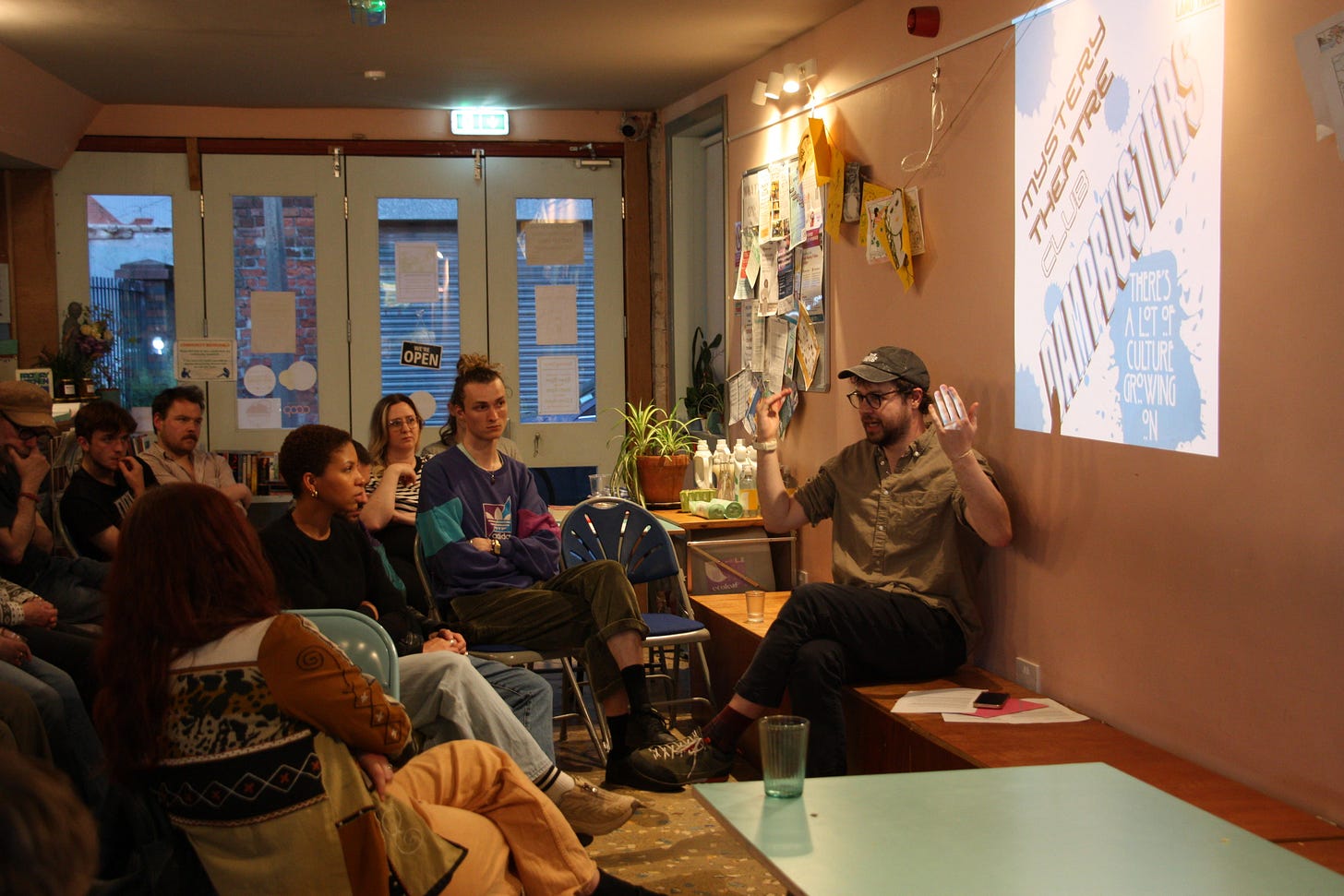
When talking to fellow artists who were looking to make more ambitious online work, they shared this frustration. They needed the money and time to develop their performances with a team of creative technologists or programmers and they were being pushed back time and time again. The resources had gone and the small pots of money ( I’m talking £500 here and there) had gone. Some of these artists resorted to returning to making solely analog , in person shows. Some stripped their work back to basics. The ambition to create digital theatre had dwindled.
For theatres who produce shows, streaming shows is incredibly expensive too and from conversations, the demand just wasn’t there to justify it. Not every theatre has an NT live budget to reach a mainstream audience. Although if the Schaubühne said fuck it we ball and brought their productions to the uk and worldwide with a similar model that would slap. Lemme see Jovana Reisinger’s Enjoy Darling on a big screen because the set looks sick.
Anyway…
It felt like we’d returned to the normal we had feared but this time with a lot less.
The one thing that lingers over these thoughts is the audiences who can’t physically access theatre who I feel are missing out even more on work. This audience was highlighted a lot during the pandemic and their voices felt like they were being heard a bit more. Yet, it feels like we’ve neglected these voices since. We dangled a carrot but withdrew it as quickly as we could.
What's the point of writing these thoughts down? It was unprompted and I know it’ll be me discussing these feelings with an empty internet.
I wanted to talk about my experiences since the end of doing weekly etudes to give an insight into the mind of a diy theatre maker in 2024. I dunno, maybe its useful.
If I was to check in with myself after writing this I’d say I feel a bit forlorn. Digital theatre and these livestreams felt really exciting at the time and it just feels like a huge missed opportunity. I don’t want to end on that feeling. So I will practice some self care. One more context specific.
Here’s to old times.
Here are 5 shows you can watch right now from the comfort of your home.
Free
Spalding Gray was the Narrator in Lincoln Center Theater’s production of this acclaimed revival of Thorton Wilder’s enduring American play. Although OUR TOWN is set in the early 1900s in a fictional community called Grover’s Corners, it could be any town, anytime.
This is been on my dream to watch list for many years so when I accidentally stumbled across it about 6 months ago I got incredibly excited.
Free
A view of the inhabitants of a derelict road in Manchester, unsatisfied with their lives and routines. A young man locks himself away from the world. An older woman flirts with a soldier on leave. Two men invite two girls into an empty house. For BBC’s ScreenPlay. Directed by Alan Clarke
Arna’s Children by Freedom Theatre Palestine
Free
A theatre workshop with children of the Jenin refugee camp was filmed from 1989 to 2003 by Juliano, a prominent actor in Palestine and Israel, and Arna's son. In the film, Juliano moves us between past and present to tell the kids' stories and the role of art as a weapon against occupation
£2.67
In front of the visitors of an art gallery, an actor stages the slow agony of the French monarch Louis XIV, until his final death, in a physical and psychological challenge of remarkable complexity. ROI SOLEIL is a reflection on the visual meaning of the actor's visage, and the deep mystery behind all genuine representation. The three essential dimensions of this dying body, the person, the actor (the vain person who is aware of being filmed) and the character, are questioned and merged with sensuality and innocence.
Alive from Off Centre collection
Free
Alive from Off Center, renamed Alive TV in 1992, was an American arts anthology television series aired by PBS between 1984 and 1996.
Each week, the series featured experimental short films by a mixture of up-and-coming and established directors. Notable episodes included "As Seen on TV," starring comic actor Bill Irwin as an auditioning dancer who becomes trapped in a television, wandering among daytime dramas, MTV, and PBS's own Sesame Street and the atmospheric puppet melodrama "Street of Crocodiles," adapted by the Brothers Quay from the Bruno Shultz story.
Well that’s me for maybe another year. I’ll probably do some tidying up of etude at some point to make it more accessible for readers but thats “ i’m bored on the week of christmas’ job.
I never want to put etude behind a paywall as I do think this is a nice resource to have but if you do want to chuck a couple of quid in a bucket then drop us a bob in ko-fi
Thanks again
Josh






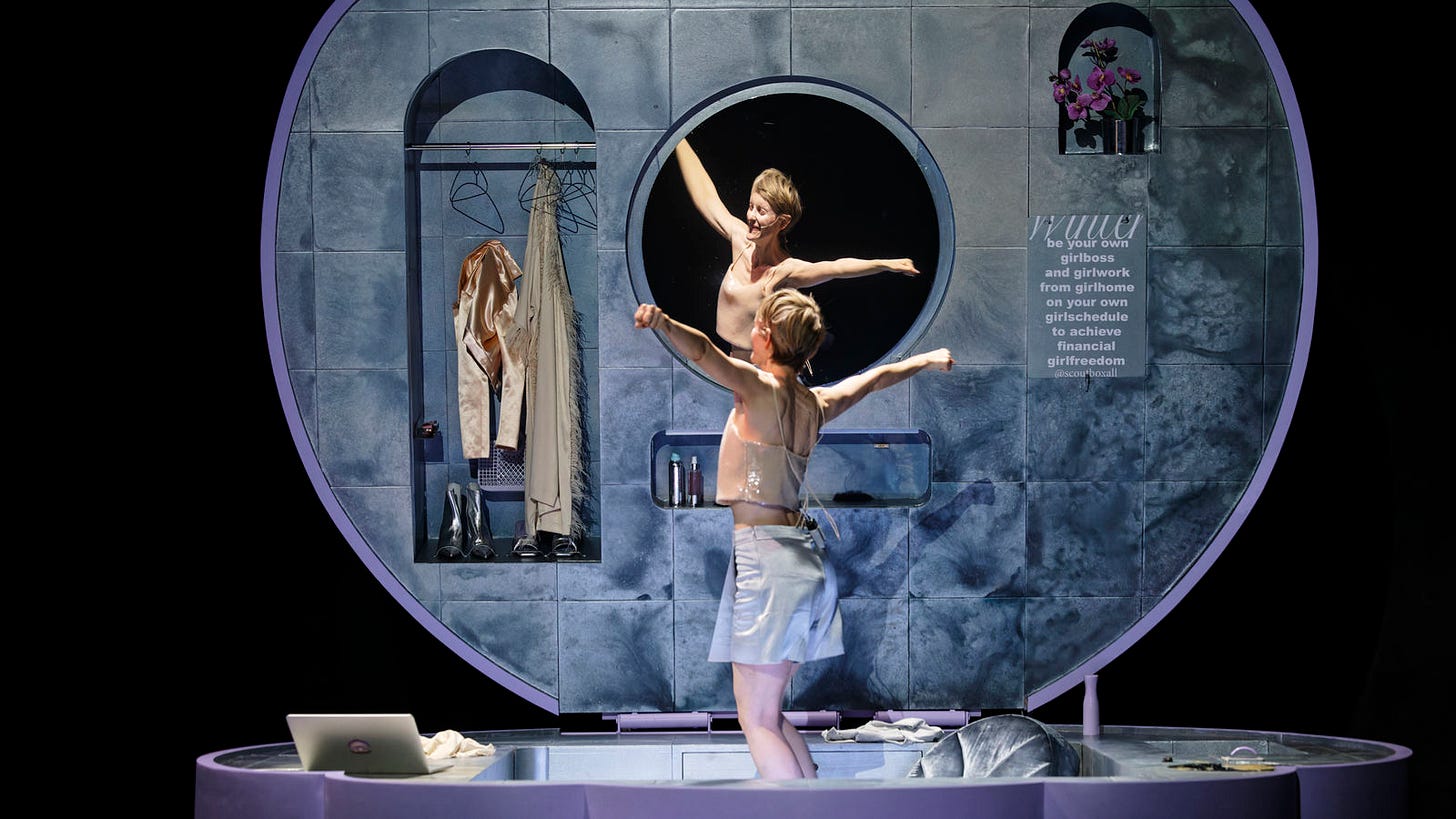
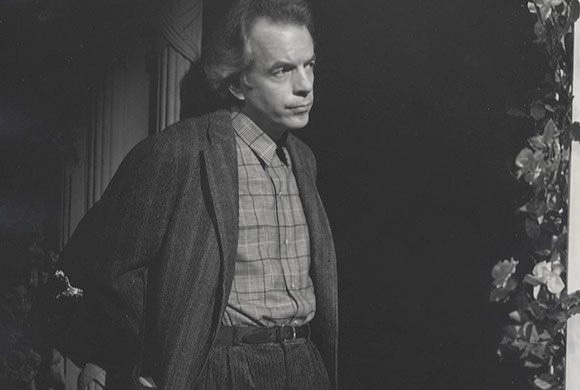
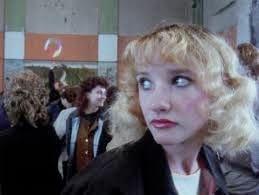

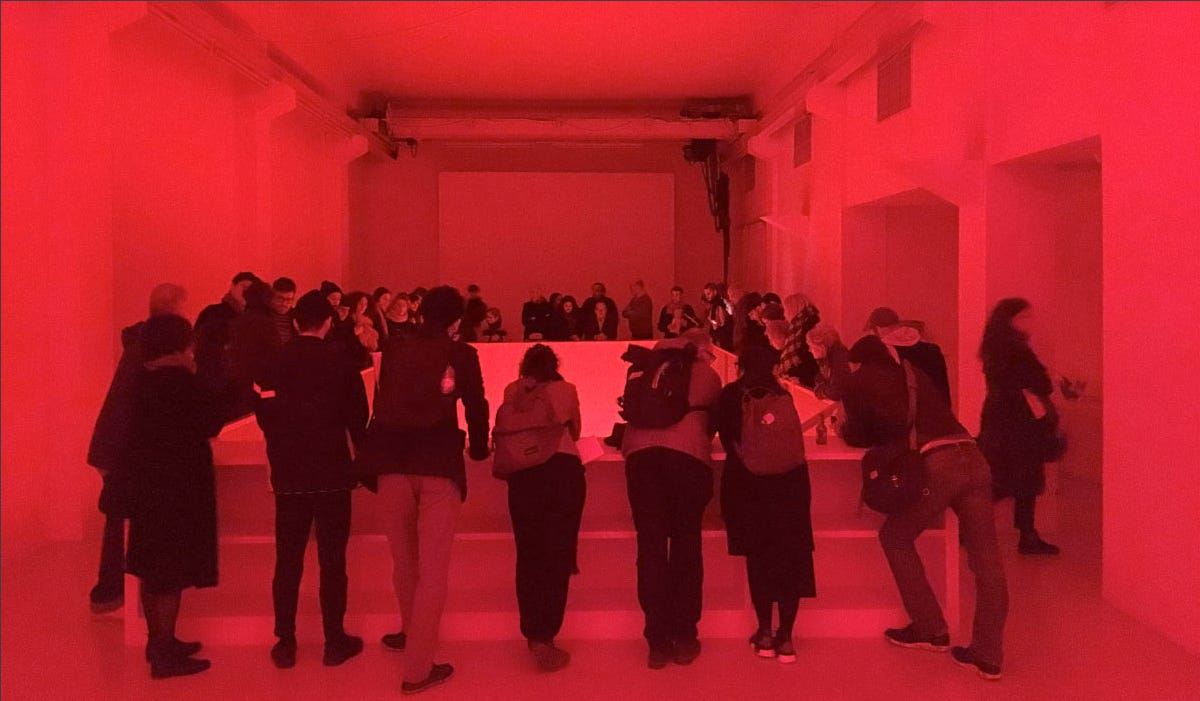

i started a birmingham what's on newsletter for exactly the same reason - social media broke the what's on model, and now that social media is broken too you literally have to go to the website of every theatre/arts org in the city separately to find out what to see! i think it has a real effect on audience numbers. etude has been (and is) so needed and fills some of that gap, so thank you.